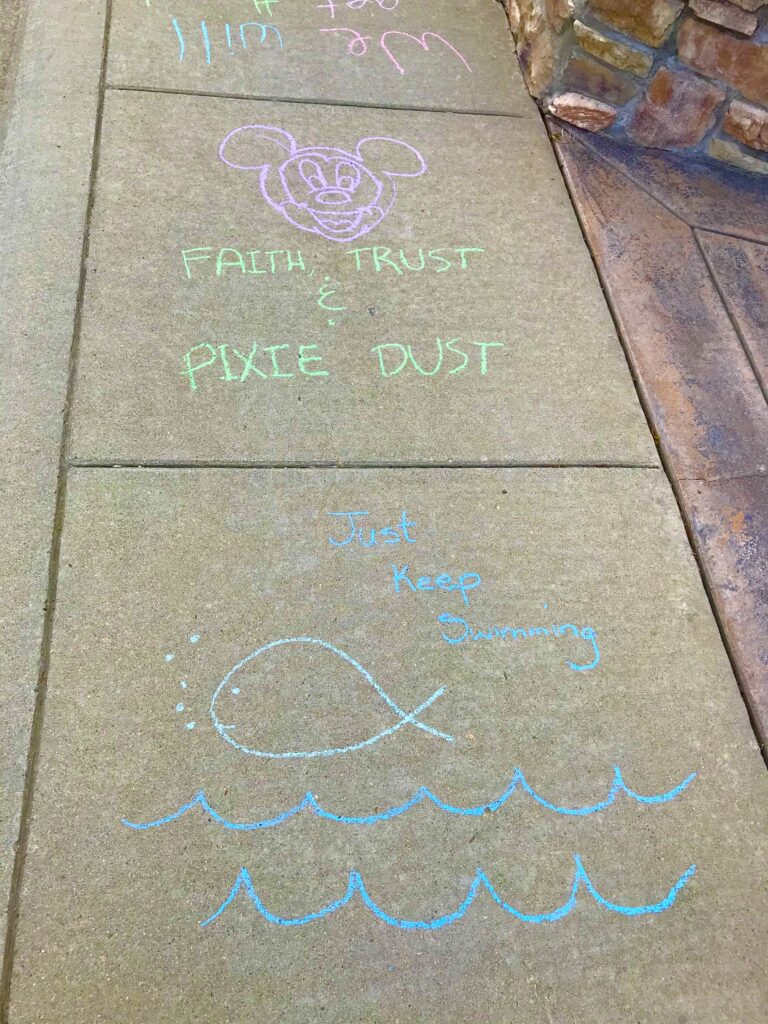
Life is not about how fast you run or how high you climb, but how well you bounce. – Vivian Komori
It’s been said that “Life is not about how fast you run or how high you climb, but how well you bounce.” That pretty much sums up 2020! We’ve all learned to “bounce” through the multitude of challenges before us this past year. Yet, through it all there were many positives that we @AFreshPOVforYou personally realized during those unprecedented days. And one of those positives was celebrating the second birthday of this blog!
WHO ARE WE?
If you are new to our blog, we are solution-focused diabetes care and education specialists. We are passionate about doing diabetes care and education differently. Too much of life is spent focusing on problems. Instead, we believe in turning attention to possibilities, opportunities, and a fresh vision for the future. We see the benefit in stepping alongside our clients as “think partners” to focus on what’s important to them, what’s already going well, and build upon that to reach their goals so that they may live life to the fullest. We invite you to join us in doing the same if this is a new paradigm for you. We are advocates for person-centered, strengths-based language, and believe that self-compassion is essential when living with a chronic condition.
OUR MISSION
As we welcome the new year, our Mission continues to be that We guide healthcare professionals in taking a solution-focused approach to practice to enable clients with diabetes to embrace possibilities, opportunities, and a fresh vision for the future.
Our interest and passion around taking a solution-focused approach to practice (and life), means acknowledging what has gone well, acknowledging how that success was achieved, then identifying how to do more of that and build upon that moving forward.
TOP 10 THINGS THAT 2020 TAUGHT US (in no particular order)
- Importance of connection with others and having support. We don’t take the human touch for granted after living through 2020. We learned that connection and support comes in many different forms. We found creative easy ways to Keep Friends Close, as well as family, through Zoom virtual happy hours, virtual graduations, virtual birthday celebrations; hugs through windows; and drive by celebrations. Find 5 ways to guide your clients to engage in ongoing diabetes support here.
- Do hard things early in the day to feel accomplished. We both work the best in the morning. While we’ve known this, it was never quite so clear as it was in 2020. We did the “hard” work early in the day when our minds were freshest, so that we felt accomplished. The stressful days left us tired and spent by days end, and after dinner to help us relax and “escape” we could often be found indulging in Netflix, Prime, and others (who knew you needed so many streaming channels?). We identified a time when things were working well (in the morning) and tried to do more of it. When working with clients, try to identify when they think the clearest and encourage them to focus on their diabetes at that time. Help them identify their “Exceptions”, those times when things are going well. If your client wears a CGM, help them identify a quiet time to retrospectively review their CGM reports to identify patterns and trends and develop 1-2 small behavior changes to move then towards their goals by “doing more of what is working well.”
- We CAN be healthy. While many have gained the “COVID 19 pounds”, and may have been over indulging during the past several months, we learned that we could continue to adopt healthy habits, even during a stay at home order. Deb likes and has been focusing on the Mediterranean eating plan that includes lots of healthy fruits and vegetables with less red meat. She also decided to go back to using her WW (formerly Weight Watchers) app to help her track her food, activity and sleep. Tami purchased an under desk elliptical machine to help keep her active during the week, and spent time enjoying great outdoor walking trails on the weekends while social distancing. While in ways it has been challenging being home so much, we learned that it can also be healthy. When eating at home there’s more control over the ingredients added to recipes. There also may be a little more time to prepare meals, or do “meal prep” for the week. Read more tips here.
- There are many possibilities, we just have to identify them. With restaurants closed and outside entertainment challenging, we quickly began to think of out of the box possibilities. Deb and her husband decided to have a “car picnic” after they picked up wine at a local winery. From the front seat of their car they could see the peaks of the Sierra Nevada Mountains while enjoying a picnic lunch and a cool glass of Rose. On the work front, taking a solution-focused approach to diabetes care and education can be a fresh new start and bring possibilities to light. Gather some tips from our blog here.
- Keep a mindset focused on finding solutions (rather than focusing on problems). We learned that in matters big and small, diabetes-related or not, by embracing a mindset that focuses on solutions, and channeling energy into leveraging strengths and possibilities, we can cultivate a solution-focused mindset. One that envisions success. One which helps manage stress. In our blog you’ll find 7 strategies you can use to step alongside your clients and support them in embracing a solution-focused mindset and managing stress.
- Acceptance and gratitude. While social distancing and stay at home orders in 2020 kept us from living out our plans for the year, we eventually came to accept that, and focus on what we could do and find gratitude and happiness in that. Read our tips on developing acceptance as a personal strength and helping cultivate it in others in our blog here, and tips to get started with daily gratitude practice here.
- The joy in giving. With life moving at a little slower pace, Tami found joy in giving to others. Small surprise “porch drops” on family and friends’ porches to brighten their day. Dropping by bags of food to be distributed to those in need in the community. She even took up baking bread as surprise drop-offs to those who would enjoy it. With the news coverage of families without food, Deb’s family and her workplace donated to www.feedingamerica.org on multiple occasions to support those in need. Sparking Joy in life and in diabetes education is an important element of our mission.
- Active listening is critical. With our daily Zoom meetings and family gatherings we learned that listening is crucial. It can be challenging to not “talk over” people when the virtual conversation includes many individuals. We couldn’t have “side bar” conversations unless they were by text or personal chat. We couldn’t read body language easily. Read more about how listening in a solution-focused practice can support the process of becoming a “think partner” with your clients.
- Resilience can be developed. How many virtual conferences or meetings have you attended in 2020? We attended more than we can count, and who knew just how successful they could be! While we missed the ability to be face-to-face with our friends and colleagues, we appreciated the opportunity to continue to learn and conduct business. We just kept going! That is what resilience is all about! Learn how you can build resilience in our blog here.
- Power of humor. How could we have survived the past year without humor! Laughing with friends online, reading silly memes on social media, and trying not to take ourselves too seriously. One of our dear colleagues and friends always provides us with comical relief and was no exception in 2020. You can sample our thoughts on humor in our blog here.

2020 was a good teacher! Let’s embrace 2021 with New Year’s “solutions”, rather than “resolutions”
Our challenge to you as we embark on this new year still facing struggles and uncertainty, is what if, instead of making New Year’s Resolutions this year (which require change and “fixing problems”), you instead guide your clients (and yourself) in making New Year’s Solutions? Who doesn’t like a solution after all? One way to identify solutions is to focus on things that have gone well in the past, and pinpoint how you can do more of that (rather than trying to change). One of the benefits of focusing on what went well, is that you can do it every day. Instead of dwelling on what you didn’t accomplish today, identify what was successful and try to do that “one thing” again tomorrow.
WHAT’S TO COME?
Throughout 2020 we launched a series of posts, each revolving around a “word of the week” to inspire solution-focused thinking and practice. We embrace those words in practice and hope that you’ve found them impactful in your conversations too. What will we write about in 2021? Here are some of our ideas that we may write more about in the months to come: practical coaching tips; building your solution-focused question library; solution-focused behavior change; and incorporating solution-focused principles in a technology-enabled world. We’d love to hear from you, and learn about what you are interested in learning regarding incorporating a solution-focused approach in your practice!
We hope that 2021 will be kind to all of us and that together we can learn how to help people with diabetes live their best life!
We welcome anyone interested in our approach to Subscribe to our blog and we’ll email you when a new post is published!
If you are a health care professional and interested in learning more about our solution-focused practice and approach, when you subscribe to our blog, we’ll send you in return a FREE resource of 10 Solution-Focused Questions to start a solution-focused discussion with your clients.



